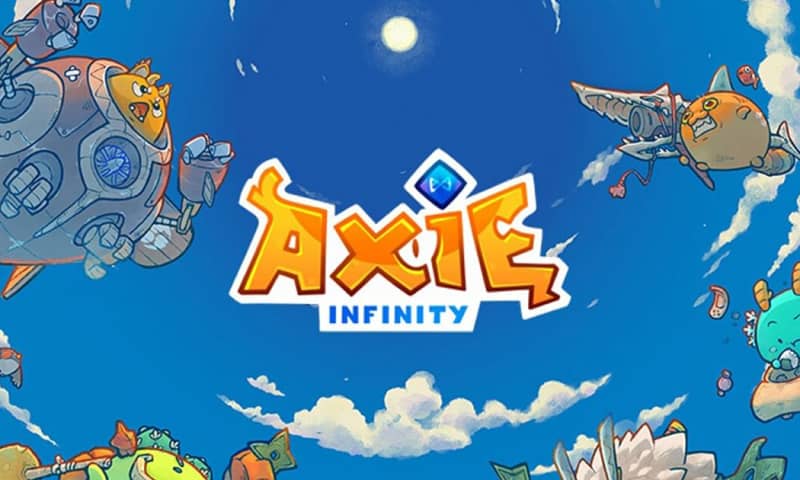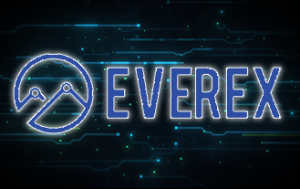8 Problems with Play-to-Earn Crypto Games
Play-to-earn crypto games on the surface are a win-win, but they also come with some drawbacks worth keeping in mind.

Play-to-earn crypto games, also known as pay-to-earn games, have been around since November 2017 when CryptoKitties was launched. But they only really took in 2021 with the rise of NFTs. At the height of the 2021 bubble, there were even those who were able to make a living from play-to-earn games like Axie Infinity during its hay-day who later had to go back to working regular jobs when the craze died down. Play-to-earn crypto games are still incredibly popular, but there are drawbacks to playing them.
Table of Contents
- Ponzi Schemes
- Too Much Grinding
- Oversaturation
- Hacks
- Volatility
- Unfair Advantage
- Rushed Projects
- Necessity
- A Disclaimer
Ponzi Schemes
Many people feel that play-to-earn crypto games have the hallmarks of a Ponzi Scheme. After all, in order to gain entry, you must first purchase a certain number of the native NFT or others in-game token and only then can you properly participate.
For some games there is no real use for new tokens besides either adding them to your collection or selling them to someone else who wants to participate in the economy, it is easier to see how this could be so.
This is because before someone can participate, they need to invest capital into the game and then they can use those assets to produce more digital assets to sell. But the only way that they can be sold is by attracting new buyers who can also only participate by spending personal cryptocurrencies or fiat and then finding new buyers for the tokens that they produce.
The platform owners make money without working since the game’s blockchain protocol automatically generates NFTs, with the participants actually doing the work of activating the protocol and attracting buyers. This is because, minimally, the developers usually take a cut of the transaction fees, although they generally find other ways to generate profit as well.
Too Much Grinding
As with most normal collection games, play-to-earn crypto games are easy early on but only get harder as time passes. Making progress in these games can be a slog.
This translates to either a large time commitment or to investing more capital to give yourself a boost. As we well know from traditional MMOs, completing quests and acquiring new items can be addictive, and the same is true when it comes to earning NFTs or cryptocurrency in-game.
Oversaturation
When projects are shiny and new, they’re exciting. Especially when people see dollar (or BTC) signs, as was the case when the first ever CryptoKitty, Genesis, sold for 246 ETH a few weeks after it was minted, equivalent to $119,328 USD at the time.
Although that may not seem significant now, it was a landmark achievement for the time, and it demonstrated that millennials+ are indeed willing to place value on digital, non-currency assets. This led to an increase of investment and equivalent increase in prices as other hopeful investors rushed to purchase and breed their own CryptoKitties in the hopes of somehow making a similar killing.
Then the hype died down, and so did the pricing. This was also due to the market being flooded with non-rare CryptoKitties that people were not particularly interested in investing in. The same holds true with other play-to-earn crypto and NFT games.
Hacks
Blockchain is meant to be a secure technology that is infallible and unhackable, which is true to an extent. The problem arises in that the more complex the coding and the more intermediaries that are introduced, such as blockchain bridges connecting the economy to off-chain economies, dApps being built on top of Ethereum, or simply the fact that the blockchain projects are generally centralized, among others, the easier it is for hackers to find weakness to exploit.
One of the biggest hacks this year occurred on the Axie Infinity blockchain thanks to a weakness in the protocol that North Korean hackers were able to exploit. They managed to drain $540 million USD worth of cryptocurrency from the platform thanks to tricking a developer into installing spyware that enabled them to access the 5 out of 9 validator nodes that were required to approve the transaction.
This incident highlighted the problem of a centralized controlled blockchain gaming dApp. This was possible due to a weakness in the protocol of the blockchain bridge that connected the Axie Infinity to the Ethereum blockchain.

Volatility
Like all blockchain assets, NFTs and gaming dApps are also subject to the volatility of the cryptocurrency market. This is because when the price of BTC and ETH decreases, they generally dimmish the fiat value of all associated cryptocurrencies as well. The reverse is not always true.
Unfair Advantage
Some play-to-earn crypto game developers sell high-level equipment or similar gaming assets to early investors. This automatically gives them an advantage over later opponents.
This especially true if they are extremely rare or once-off items, or if they are incredibly difficult to acquire the parts or experience for.
Fighting an opponent that can decimate you is not fun, and it makes grinding for experience that much harder as well, unless there is some kind of protocol in place to ensure that you are pitted against opponents who are at a similar level to you.
Rushed Projects
Many developers saw the ballooning popularity of blockchain-based games and prioritized churning out their dApp project to cash in on potential profits rather than focusing on user experience and security. This leads to a lack of trust among consumers, as well as difficulty for gamers to sift through the projects to find the real, reliable and enjoyable dApp games.
Necessity
Many gamers also wonder what blockchain truly contributes to gaming. After all, most games are centralized, which makes them no safer than a typical server. Additionally, developers have more control over resetting servers if any problems arise such as update errors or hacks on traditional gaming servers than on blockchain platforms, where undoing the damage done by hackers is hugely problematic.
For instance, returning to the Axie Infinity hack, the platforms users were unhappy with the developers’ suggestion of introducing newly minted Axies to the platform to reimburse those who had theirs stolen in the hack because this would dilute the value of the other tokens. There is no way to reset a blockchain.
A Disclaimer
The points above are simply points of concern that others have. It does not mean that the games mentioned above nor all play-to-earn crypto games are truly subject to these concerns. After all, the value is in the eyes of the beholder. Furthermore, there are other points to consider:
- Many games, including Axie Infinity and blockchain-based collectible card games have an upgrade system that allows you to either merge or upgrade assets in a way that makes them more powerful and unique. These are done either by slowly grinding to earn the tokens other upgrade assets required to upgrade the base assets or by purchasing them on the market and then putting those new, unique assets on the market.
- Selling digital assets online for a profit is not unique to blockchain-based games. This has been a central part of MMORPGs like World of Warcraft and certain trading card games such as Pokémon TCG Online for many years. However, the general stipulation for those economies is that they can only be exchanged on the platform itself. The difference with play-to-earn games is that the cryptocurrency economy inherently enables the player to make a real-world profit by exchanging the on-platform tokens for real cryptocurrency either on or off the blockchain through their connected crypto wallets.
- Most mobile games are pay-to-win (p2w) in some way, no matter how much they may try to market themselves otherwise. For instance if you pay for a monthly pass that gives you aesthetic, experience, or some other benefit at every milestone on the path, then that will automatically give you an advantage over someone who is free-to-play – and this is true for free-to-play crypto games as well.
- Reddit is a good way to discover good cryptocurrency and NFT games, rather than trying to discover good ones through trial and error.






